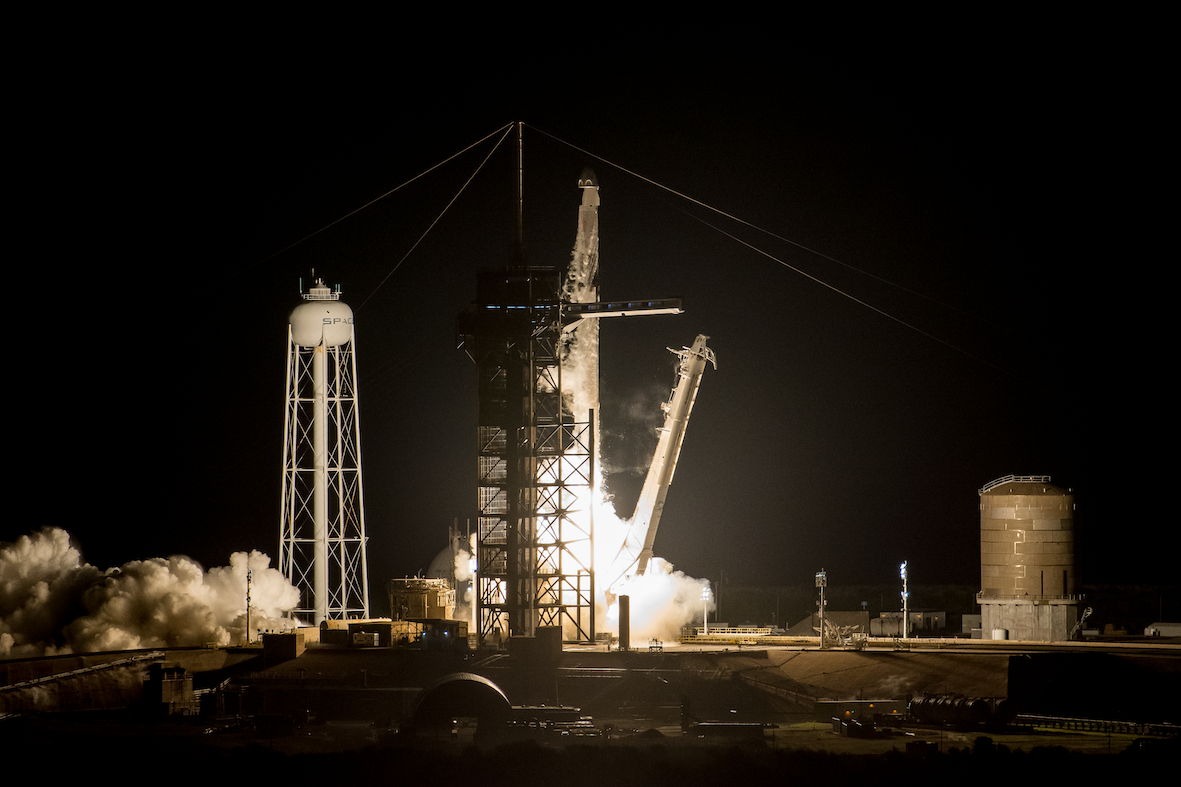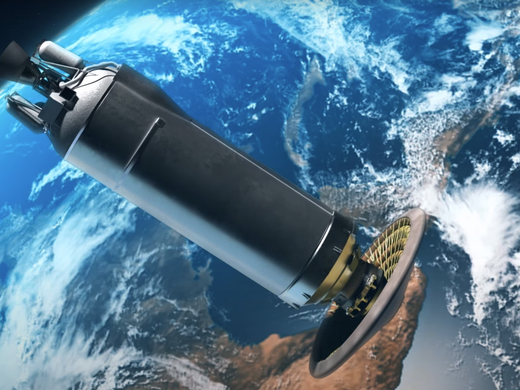There are two continuing discussions about the emerging possibilities of space mining: first, around extracting, refining and using such resources in space; and second, around the feasibility of getting space resources back to Earth.
The first question concerns extracting, for example, lunar water ice. Water is very expensive to transport from Earth, so its presence on the Moon is of great interest to spacefaring countries and companies. Water can be used directly for human consumption or to grow food, and can also be turned into hydrogen for rocket fuel and oxygen for spacefarers, allowing spacecraft to refuel and resupply on or near the Moon before heading onward to Mars or elsewhere.
The second question concerns whether minerals and metals found on the Moon, Mars or in the asteroid belt — particularly “rare earth” metals — can be brought back to Earth and used to support decarbonization through the switch from fossil fuels to battery technology.
Space agencies around the world have indicated that space resources are necessary for their planned missions to Mars and deep space, and for longer-term missions to the Moon. These plans involve space agencies from the United States and 35 other countries, including Canada, partnering with the National Aeronautics and Space Administration (NASA) in its Artemis missions to the Moon. Russia and China are also interested in space resources. Commercial actors have similarly indicated their interest in space resource extraction.
All of this activity hides an important fact: existing international space law provides no detailed guidance on whether, when and how space resources can and should be extracted.
The 1967 Outer Space Treaty, or OST, sets out the central framework of space law. Article I states that the “exploration and use of outer space, including the moon and other celestial bodies, shall be carried out for the benefit and in the interests of all countries.” The treaty also affirms that outer space “shall be free for exploration and use by all States” and that “there shall be free access to all areas of celestial bodies.”
Article II of the OST sets a limit on how countries can use space. Specifically, it states that outer space “is not subject to national appropriation.” This means no territorial claims are permitted in space, and no one can acquire property rights to celestial bodies. However, Article II does not say whether space mining is permitted, or, if it is, how much can be mined and where it can be mined, or whether countries or commercial actors can obtain ownership rights to the material mined.
The position of the United States is that the OST’s non-appropriation principle applies to space resources only when these resources are in place (in situ) on the celestial body. In the US view, this prohibition does not extend to governmental or private ownership of resources once they are no longer in situ. The United States has adopted a domestic law — the 2015 Commercial Space Launch Competitiveness Act — implementing this approach.
Other countries — including Luxembourg, Japan and the United Arab Emirates — have also adopted laws on space resources. Yet not all agree, with some countries concerned that the American interpretation disproportionately benefits countries and companies that have the financial capacity to get into space.
This lack of clarity has led to debate within the Legal Subcommittee of the United Nations Committee on the Peaceful Uses of Outer Space, or COPUOS, which is composed of more than 100 countries. In 2021, it created the Working Group on Legal Aspects of Space Resource Activities to:
- collect relevant information concerning activities in the exploration, exploitation and utilization of space resources;
- study the existing legal framework for such activities;
- assess the benefits of developing a framework for such activities beyond the OST, including additional international governance instruments;
- develop a set of initial recommended principles for such activities, potentially to be adopted by the UN General Assembly; and
- identify next steps, which may include the development of potential rules or norms.
That mandate began with initial steps in 2022, and a five-year timeline running from 2023 to 2027.
The discussions in the Working Group have been progressing. There is wide agreement that sharing of information and coordination among spacefaring countries is key. There have been many calls for sharing the nature, conduct, locations and results of missions to extract resources in space. There is also agreement that this question is not only a legal issue but also a scientific issue, requiring coordination between lawyers and scientists, including within COPUOS.
A number of countries, such as New Zealand and Germany, are concerned about the environmental effects of space resource extraction and want principles of sustainable development to be clearly articulated. As well, many are uneasy about the potential effects of space resource extraction on science. As Germany has noted, pristine conditions are needed for astronomy, and space mining could interfere.
Non-spacefaring countries and new entrants to the domain are worried that space mining will become a first-come, first-served activity, with the most technologically advanced countries and companies gaining the most. They are calling for any space resources framework to be as equitable as possible. For instance, Indonesia has called for “collaboration on the issue of space resources so that developing countries are not left behind by spacefaring countries.” And both Malaysia and Pakistan have reminded COPUOS members that space resource activities must be conducted for the benefit of all countries, irrespective of their degree of economic or scientific development.
Finally, there is disagreement about whether now is the time to create a comprehensive international regime for space resource activities. Some — such as Indonesia — argue that rules are needed now regarding methods of coordinating resource extraction, risks, rights over extracted resources, and preservation of the environment. Others are more cautious, fearing that legal rules decided now could be based on incorrect assumptions and may not fit the space mining technology and practices that develop in the future. For example, Canada’s position has long been that “the legal framework should not get ahead of technical progress.” The United States is more direct: “At this stage, the United States sees neither a need nor a practical basis to create a comprehensive international regime for space resource utilization activities.”
Belgium and Luxembourg hosted an international expert meeting on space resources in March 2024, and COPUOS is holding an international conference in April 2024, to consider the scientific, technical and operational aspects relevant to developing an initial set of recommended principles for space resource activities.
These discussions in the Working Group, while at an early stage, are crucial for creating a much-needed governance regime for space resources.
This piece is a response to “Only Effective Space Governance Can Prevent Future Conflict” by Timiebi Aganaba.



